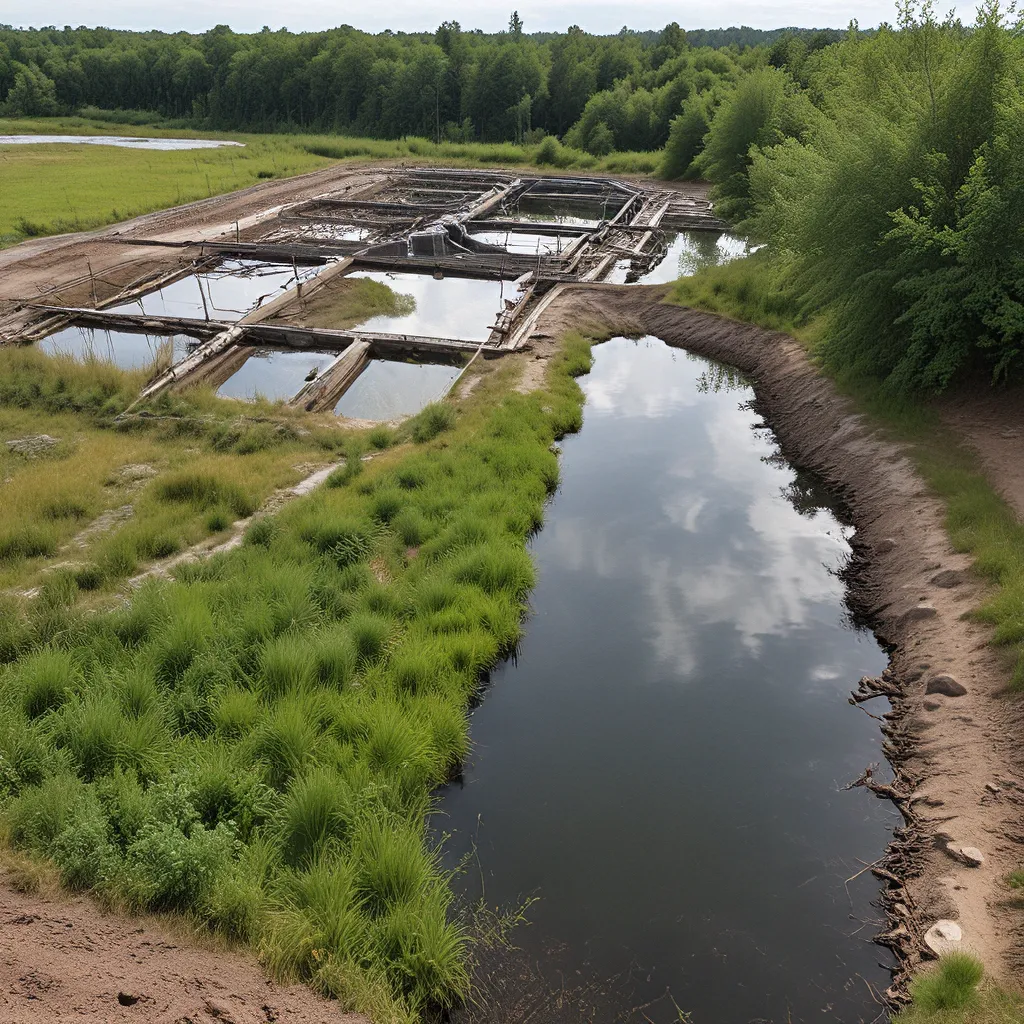
As the world grapples with the ever-growing demands on our precious water resources, the critical role of wastewater treatment has never been more apparent. While the primary focus of these systems has traditionally been on removing contaminants and ensuring safe water discharge, a paradigm shift is underway. Ecosystem restoration and resource recovery are now taking center stage, transforming wastewater treatment into a multifaceted endeavor that not only protects our environment but also harnesses the valuable resources within.
Bridging the Gap: Wastewater Treatment and Ecosystem Restoration
I’ve always found it fascinating how the fate of our waterways and the health of our ecosystems are so intricately linked. Take, for instance, the plight of Florida’s Coral Reef, one of the most vibrant and diverse marine habitats in the world. In recent years, this ecological gem has faced a daunting array of threats, from disease and pollution to warming ocean temperatures and ocean acidification.
The Florida Department of Environmental Protection’s (DEP) Coral Protection and Restoration (CPR) Program has been at the forefront of efforts to address these challenges. Through initiatives like the Governors Florida’s Coral Reef Restoration and Recovery (FCR3) Initiative, they are working tirelessly to develop the necessary infrastructure, technology, and skilled workforce to support the long-term recovery of at least 25% of Florida’s Coral Reef by 2050.
But what does this have to do with wastewater treatment, you might ask? Well, it turns out that water quality is a critical factor in ensuring the health and resilience of coral reef ecosystems. Corals are the “Goldilocks of the Sea” – they require a delicate balance of nutrients, temperature, and other environmental conditions to thrive. And this is where wastewater treatment comes into play.
Wastewater Treatment: A Multifaceted Approach
Traditionally, wastewater treatment plants have focused on removing contaminants, such as chemicals, heavy metals, and pathogens, to ensure that the discharged water is safe for the environment and human use. However, as our understanding of the interconnectedness of ecosystems has grown, the scope of wastewater treatment has expanded.
Alpha Wastewater, a leading provider of innovative wastewater treatment solutions, recognizes that their role goes beyond just cleaning the water. They understand that by carefully managing the nutrient levels, temperature, and other key parameters in the treated water, they can actively contribute to the restoration and protection of delicate ecosystems like Florida’s Coral Reef.
One of the innovative approaches used by Alpha Wastewater is the implementation of advanced nutrient removal technologies. These systems are designed to precisely control the levels of nitrogen and phosphorus in the treated water, preventing the excessive growth of algae that can smother and suffocate coral colonies. By maintaining a healthy balance of these essential nutrients, they help create an environment that is conducive to the recovery and long-term resilience of coral reef ecosystems.
But the benefits of wastewater treatment go even further. Resource recovery strategies are now being integrated into these systems, transforming wastewater from a waste product into a valuable resource. Through processes like anaerobic digestion and water reclamation, Alpha Wastewater is able to extract and repurpose materials like biogas, reclaimed water, and nutrient-rich sludge, which can then be used for energy generation, irrigation, fertilizer, and a host of other applications.
The Evolving Role of Wastewater Treatment
As our understanding of the interconnectedness of environmental systems continues to deepen, the role of wastewater treatment is undergoing a profound transformation. No longer is it simply a means of removing contaminants; it has become a critical component in the larger quest for sustainable resource management and ecosystem restoration.
The work being done by the Florida DEP’s CPR Program and innovative companies like Alpha Wastewater serves as a shining example of how we can balance environmental priorities and resource recovery strategies. By leveraging advanced technologies and a holistic approach, they are paving the way for a future where wastewater treatment is not just a necessary evil, but a powerful tool for safeguarding the health and resilience of our precious natural resources.
Of course, this is an ever-evolving landscape, and ongoing research and debate continue to shape our understanding of the best practices and strategies for wastewater treatment and ecosystem restoration. But one thing is clear: as we navigate the complex challenges of the 21st century, the importance of this field will only continue to grow, and those who embrace its potential will be at the forefront of creating a more sustainable and resilient future for all.
So, if you’re like me and find yourself captivated by the intersection of environmental stewardship and innovative technology, keep an eye on the rapidly advancing field of wastewater treatment. Who knows, you might just be inspired to join the ranks of those who are redefining the limits of what’s possible and restoring the balance between humanity and the natural world.